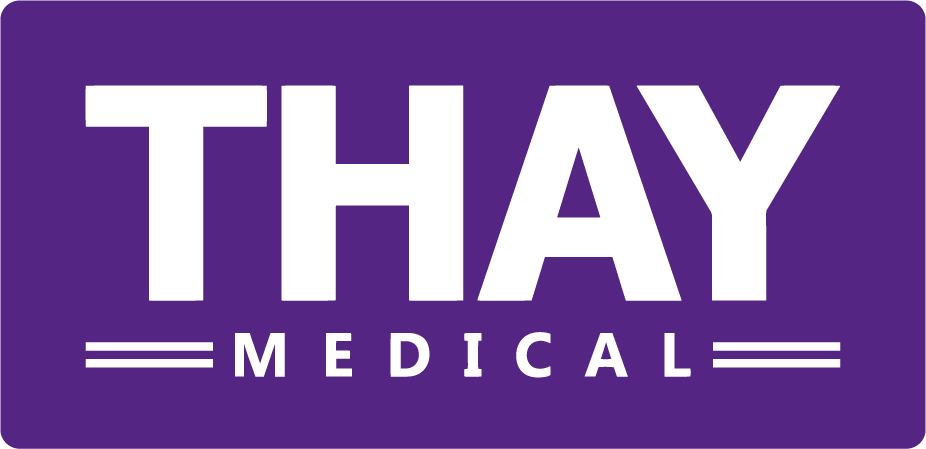Why human factors and usability is important in healthcare – Part 1
 Human beings are generally quite positive animals. We, as a species are one of the few species that continuously improve ourselves and our surroundings. We are by far though the quickest evolving animals right now. This past weekend, we have been remembering the past one-hundred years since Armistice Day in 1918. To think that this was one-hundred years ago is staggering. But what is more staggering is the change we have been involved with over this time. HealthcareIf we look at healthcare over the past one-hundred years, we see that every area has evolved and how we care for each other has vastly improved. In 1918, the average age of death was 47 years old – although this was considerably influenced. Two years later the average in the UK had jumped up by a decade to 57 years old. Eleven years later in 1931, this had risen to 60 years, where it stayed around this until 1946 when it hit 65 years as an average. Ten years after the second World War, it hit 70 years[1]. When you plot this, you notice a trend that a decade after either of the two World Wars, the average age of death of the UK population had increased – like a step jump. Note that this is not representative of all countries. In 2015, the average age of death was 81 years. So, in one hundred years of the human species in the UK, the average age of death increased by 34 years, or by over 72%.What contributes to this increase? By far, one of the largest factors is the advancement in how we look after ourselves and how we are cared for – in essence – our healthcare. Along with improvements in many other areas – diets, exercise, technology, lifestyle etc., it has been healthcare that has prevented premature death in many of us, our parents and grandparents. My own personal view is that the eradication of many diseases and viruses has contributed to this evolvement, along with the ability to repair the human body in a more safe, biological manner. Surgery is vastly more safe than it was in 1918. The discovery of Penicillin in 1928 by Alistair Fleming was a breakthrough in antibiotic technology. The first organ transplant (a kidney transplant) in 1954 and the start of stem cell therapy in the 1970’s are notable advances. In the 21st century its all about personalised medicine and healthcare.Personalised medicine is a very interesting area to delve into – because it involves human beings – not as a system, but as individuals. This is where human factors really plays a large role. I often tell people that human factors engineering is a prediction tool – especially during medical device development. The whole purpose of performing a human factors engineering process is to predict the future use of a medical device or system whilst its being developed -and to ensure it is safe to use. Thus, it is meant to be a prediction tool, and not a compliance checkbox! If you really understand the intended user, then you can predict their behaviour in specific circumstances and ensure what is being developed is usable, efficient, clinically-effective, safe in use and creates a positive use experience.To continue to evolve healthcare, and the products and systems we use within this industry, we have to become more predictive. This will mean we become less reactive, and this should reduce the occurrence of medical errors, lack of care and litigation. To do this we have to embrace human factors engineering to really understand and predict future behaviours. We have to make sure that we optimise use safety in areas that may not be crystal clear – between the uses of individual medical devices, or between people. Human Factors Engineers have to become part-psychologist, part-clinician and part-engineer. We will have to wear multiple hats – purely since there are so many human factors that can influence the safe use of a product in healthcare. We will need a crystal ball…Or may be not! With the advancement in technology, we have a lot of data just hanging around. If we use data smartly, you can determine patterns of use of particular therapies, systems and devices in healthcare. Human beings are very predictable. A large percentage of people will use medical devices in a similar manner, because we all strive to use these devices to achieve a clinical outcome in a safe manner. Human Factors Engineers need to be able to really dig deep into specific areas to really understand and predict users behaviour patterns. Risk assessment partially assists in this, as does the performing of many early-stage development human factors exercises (such as contextual inquiry, heuristic analysis, task analysis etc.). If you are developing a new medical device, then the role of human factors engineering is to predict use by having expertise created in one area from a human factors angle. In essence, I would like to predict that Human Factors Engineering will become as specialist as being a clinician in a particular area. This will benefit all, as then new healthcare devices and systems will be developed based upon known data and prediction, focused on use safety to create that personal experience that we all crave. This is why human factors engineering is important in healthcare in the 21st century - because you can’t evolve the area of personalised healthcare without understanding the person.Want to know more?For any questions on this blog post, please do not hesitate to contact us.The Staff at THAY Medical [1] Source: https://ourworldindata.org/life-expectancy
Human beings are generally quite positive animals. We, as a species are one of the few species that continuously improve ourselves and our surroundings. We are by far though the quickest evolving animals right now. This past weekend, we have been remembering the past one-hundred years since Armistice Day in 1918. To think that this was one-hundred years ago is staggering. But what is more staggering is the change we have been involved with over this time. HealthcareIf we look at healthcare over the past one-hundred years, we see that every area has evolved and how we care for each other has vastly improved. In 1918, the average age of death was 47 years old – although this was considerably influenced. Two years later the average in the UK had jumped up by a decade to 57 years old. Eleven years later in 1931, this had risen to 60 years, where it stayed around this until 1946 when it hit 65 years as an average. Ten years after the second World War, it hit 70 years[1]. When you plot this, you notice a trend that a decade after either of the two World Wars, the average age of death of the UK population had increased – like a step jump. Note that this is not representative of all countries. In 2015, the average age of death was 81 years. So, in one hundred years of the human species in the UK, the average age of death increased by 34 years, or by over 72%.What contributes to this increase? By far, one of the largest factors is the advancement in how we look after ourselves and how we are cared for – in essence – our healthcare. Along with improvements in many other areas – diets, exercise, technology, lifestyle etc., it has been healthcare that has prevented premature death in many of us, our parents and grandparents. My own personal view is that the eradication of many diseases and viruses has contributed to this evolvement, along with the ability to repair the human body in a more safe, biological manner. Surgery is vastly more safe than it was in 1918. The discovery of Penicillin in 1928 by Alistair Fleming was a breakthrough in antibiotic technology. The first organ transplant (a kidney transplant) in 1954 and the start of stem cell therapy in the 1970’s are notable advances. In the 21st century its all about personalised medicine and healthcare.Personalised medicine is a very interesting area to delve into – because it involves human beings – not as a system, but as individuals. This is where human factors really plays a large role. I often tell people that human factors engineering is a prediction tool – especially during medical device development. The whole purpose of performing a human factors engineering process is to predict the future use of a medical device or system whilst its being developed -and to ensure it is safe to use. Thus, it is meant to be a prediction tool, and not a compliance checkbox! If you really understand the intended user, then you can predict their behaviour in specific circumstances and ensure what is being developed is usable, efficient, clinically-effective, safe in use and creates a positive use experience.To continue to evolve healthcare, and the products and systems we use within this industry, we have to become more predictive. This will mean we become less reactive, and this should reduce the occurrence of medical errors, lack of care and litigation. To do this we have to embrace human factors engineering to really understand and predict future behaviours. We have to make sure that we optimise use safety in areas that may not be crystal clear – between the uses of individual medical devices, or between people. Human Factors Engineers have to become part-psychologist, part-clinician and part-engineer. We will have to wear multiple hats – purely since there are so many human factors that can influence the safe use of a product in healthcare. We will need a crystal ball…Or may be not! With the advancement in technology, we have a lot of data just hanging around. If we use data smartly, you can determine patterns of use of particular therapies, systems and devices in healthcare. Human beings are very predictable. A large percentage of people will use medical devices in a similar manner, because we all strive to use these devices to achieve a clinical outcome in a safe manner. Human Factors Engineers need to be able to really dig deep into specific areas to really understand and predict users behaviour patterns. Risk assessment partially assists in this, as does the performing of many early-stage development human factors exercises (such as contextual inquiry, heuristic analysis, task analysis etc.). If you are developing a new medical device, then the role of human factors engineering is to predict use by having expertise created in one area from a human factors angle. In essence, I would like to predict that Human Factors Engineering will become as specialist as being a clinician in a particular area. This will benefit all, as then new healthcare devices and systems will be developed based upon known data and prediction, focused on use safety to create that personal experience that we all crave. This is why human factors engineering is important in healthcare in the 21st century - because you can’t evolve the area of personalised healthcare without understanding the person.Want to know more?For any questions on this blog post, please do not hesitate to contact us.The Staff at THAY Medical [1] Source: https://ourworldindata.org/life-expectancy

